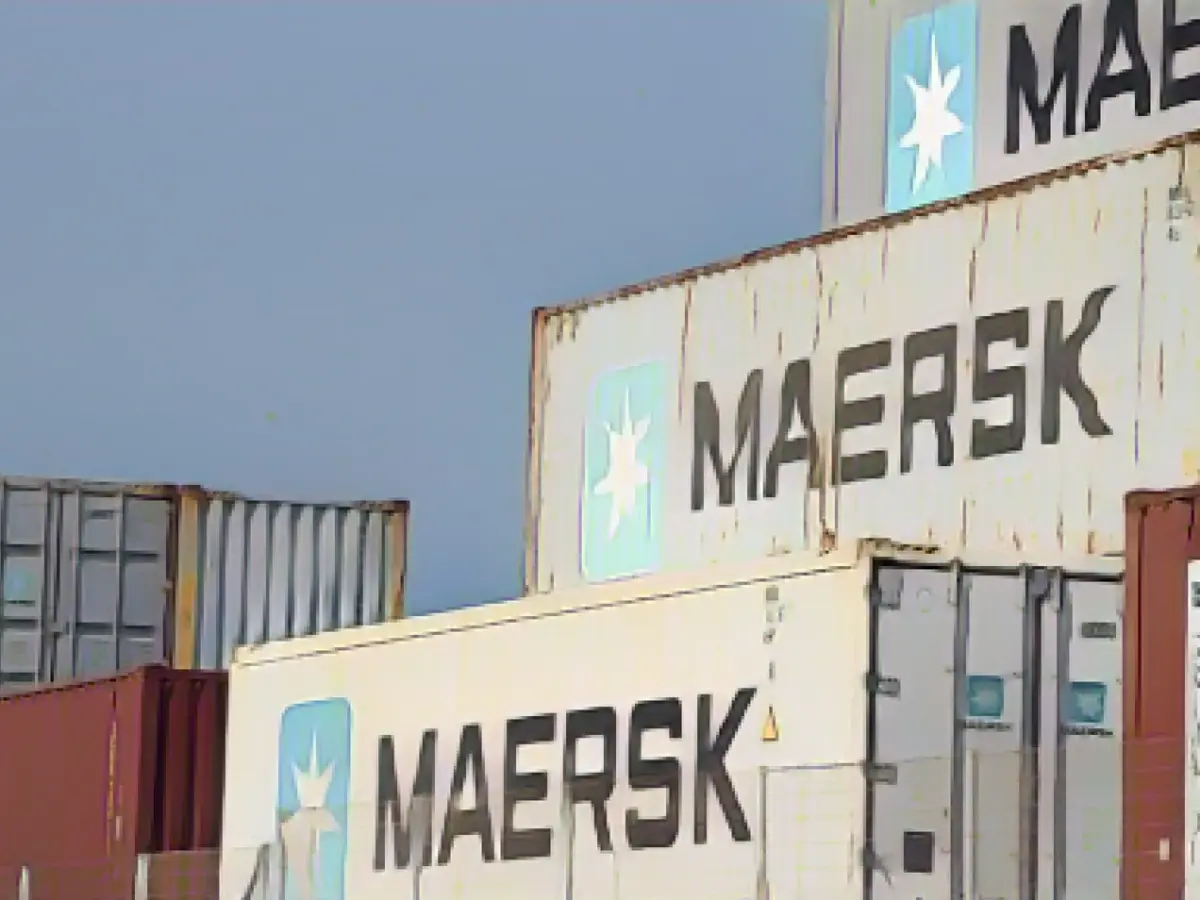Middle East conflict - Maersk welcomes protection plans for shipping: continued caution
Despite growing efforts to militarily protect merchant ships from attacks in the Red Sea, Danish shipping company Maersk is maintaining its cautious course. "We are pleased that governments around the world have responded promptly with joint efforts to address international maritime security and capacity building in the area in order to bring about a solution that will enable an early return to transit through the Red Sea, the Gulf of Aden and the Suez Canal," it said in a statement issued in Copenhagen on Tuesday.
In view of an increasing number of attacks on merchant ships in the Red Sea by the Iranian-backed Huthi rebels, the US military is stepping up its cooperation with the armed forces of other countries in the region. According to the US Department of Defense in Washington, several countries are participating in the new security initiative called "Operation Prosperity Guardian", including the United Kingdom, Bahrain, Canada, France, Italy, the Netherlands, Norway and the Seychelles. The increased cooperation between the naval forces is intended to improve the protection of merchant ships.
However, Maersk states: "At this stage, it is difficult to determine the exact timing." The decision to reroute ships via the Cape of Good Hope will therefore "ultimately lead to faster and more predictable results for our customers and their supply chains."
Maersk is the world's second largest container shipping company in terms of transport capacity and operates 12 services in the trade lane, making an average of 24 passages through the Suez Canal every week. The German shipping company Hapag-Lloyd had already confirmed on Monday that detour via the Cape of Good Hope would continue "until the passage through the Suez Canal and the Red Sea is safe again for ships and their crews". The industry leader MSC also confirmed in a message to customers on Monday that MSC ships will not sail east and west through the Suez Canal until the passage through the Red Sea is safe.
Read also:
- A clan member is punished here
- Traffic lawyer warns: Don't talk to the police!
- Will he be convicted as Jutta's murderer after 37 years?
- He also wanted to kill his cousin
- Maersk, based in Copenhagen, encourages international efforts to enhance security in the Red Sea, Gulf of Aden, and Suez Canal, acknowledging the impact of Middle East conflicts on shipping.
- The Red Sea has seen an escalation in attacks on merchant ships, with Iran being suspected of supporting the Huthi rebels responsible.
- Operation Prosperity Guardian, a new security initiative, involves several nations, including the US, UK, Canada, and others, to safeguard shipping in the Red Sea.
- Despite these joint efforts, Maersk remains cautious, foreseeing challenges in determining the optimal timing to reroute ships via the Cape of Good Hope for better customer service.
- The Suez Canal, a crucial trade route, has been affected by the conflict, causing Mærsk, Hapag-Lloyd, and MSC to navigate around the Cape of Good Hope until it is safe to pass through the canal and Red Sea.
- The Middle East conflict has resulted in increased tensions, leading to concerns about conflicts and wars that may impact shipping lanes in the region.
- Ships passing through the Gulf of Aden have faced threats, prompting the need for enhanced safety measures and cooperation between various naval forces.
- Merchant ships traveling in the Middle East region frequently pass through the Red Sea and the Suez Canal, and their safety is a concern for shipping companies like Maersk.
- The Palestinian territories, like Gaza and the West Bank, are also part of the complex Middle East conflict, which can indirectly impact global shipping via maritime routes.
Source: www.stern.de








